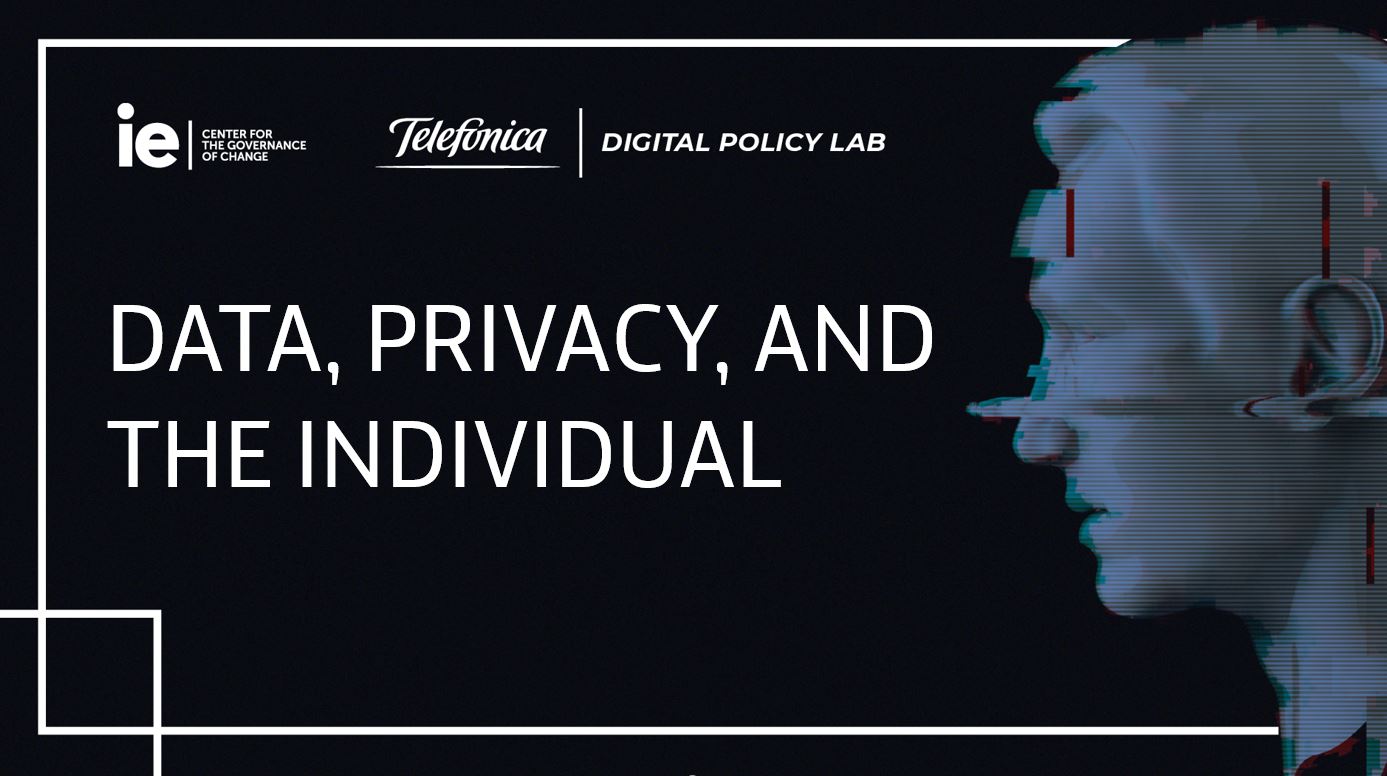According to the new research by IE University, privacy-related negative experiences online are extremely common: 92% of citizens report having had suffered at least one privacy breach
- The new report “Data, Privacy, and the Individual” from the Center for the Governance of Change of IE University in partnership with Telefónica Digital Policy Lab reveals that the business race in the near future will be about who gets to protect our privacy.
- 88% of people think that violations to the right to privacy are one of the most important dangers that we face in the digital age.
- People tend to feel that they cannot trust companies and institutions to protect their privacy and use their personal data in responsible ways.
- People value privacy for the protection it affords, but also as a good in itself, above and beyond its consequences.
Madrid, March 5, 2020 – The report “Data, Privacy & The Individual. Getting Privacy Right in the Digital Era”, published today by the Center for the Governance of Change (CGC) of IE University, in collaboration with Telefónica Digital Policy Lab, explores some of the key ethical questions related to privacy posed by today’s emerging technologies. It also analyzes new technical methods that governments and companies can use to take advantage from information while respecting regulations and maintaining the trust of both their clients and citizens.
Data is the main fuel of our digital economy. Our financial transactions, movements, communications, relationships and interactions with governments and businesses generate data that is collected, bought and sold.
Establishing ethical data practices and developing technical ways of protecting sensitive data are two fundamental pillars to keep citizens safe and overcome the privacy challenges that we face in the digital era.
“The European Union’s General Data Protection Regulation (GDPR) inaugurated the beginning of robust data protection regulation and, although more needs to be done, it is a step in the right direction towards ensuring citizens’ privacy”, said Carissa Véliz, Director of the “Data, Privacy, and the Individual” research programme. The business race in the near future will not be about who can better collect and exploit our personal data, but about who gets to protect our privacy better.
Citizens have started to understand the real cost of using digital technologies and our society is having to relearn the value of privacy through the bad consequences that ensue from privacy losses. In fact, according to a survey of more than 1.000 citizens included in this report, privacy-related negative experiences online are extremely common: 92% of citizens have had at least one privacy breach in their lives and this number is bound to keep growing in the next years.
The CGC report also found that 97% of citizens believe that privacy is a right, and 82% of respondents deem privacy extremely or very important. Similarly, 88% of participants consider that violations to the right to privacy are one of the most important dangers that citizens face in the digital age.
This research also confirms that many of the ethical challenges that we face today are related to power asymmetries: when it comes to data, individuals are systematically disadvantaged with respect to companies and governments. In this context, the report urges companies to do what they can to empower users and enhance their autonomy.
Furthermore, it points out that we ought to be investing more in developing better privacy tools and better digital ethics. “If we invested a fraction in privacy and ethics as we are investing in developing artificial intelligence, we would have many more reasons to be optimistic about the future of the digital age”, researchers said.
The report “Data, Privacy, and the Individual” concludes with a set of privacy-related recommendations. First, it highlights that data collection and analysis is only justifiable when it is necessary to fulfil a valuable objective for society and individuals. Experts also consider that data subjects should be the main beneficiaries, and that the more information they share, and the more sensitive it is, the more they should benefit from the collection and analysis of their data.
Finally, researchers recommend using technological tools that protect privacy, establishing a chain of responsibility for data, and always informing data subjects before collecting their data.
This report is the culmination of a project led by Carissa Véliz and a team of experts from different international institutions such as the University of Oxford, the University of Cambridge, the Max Planck Institute and the Universitat de Valencia, that produced seven research papers and a worldwide survey on attitudes towards privacy.
Don’t miss out the video: https://espacio.fundaciontelefonica.com/evento/datos-y-ciudadania-como-proteger-tu-privacidad-en-la-era-digital/







